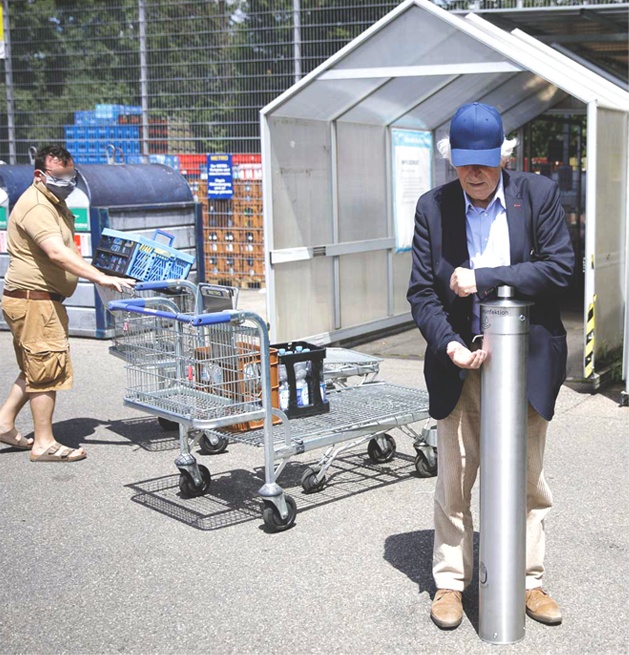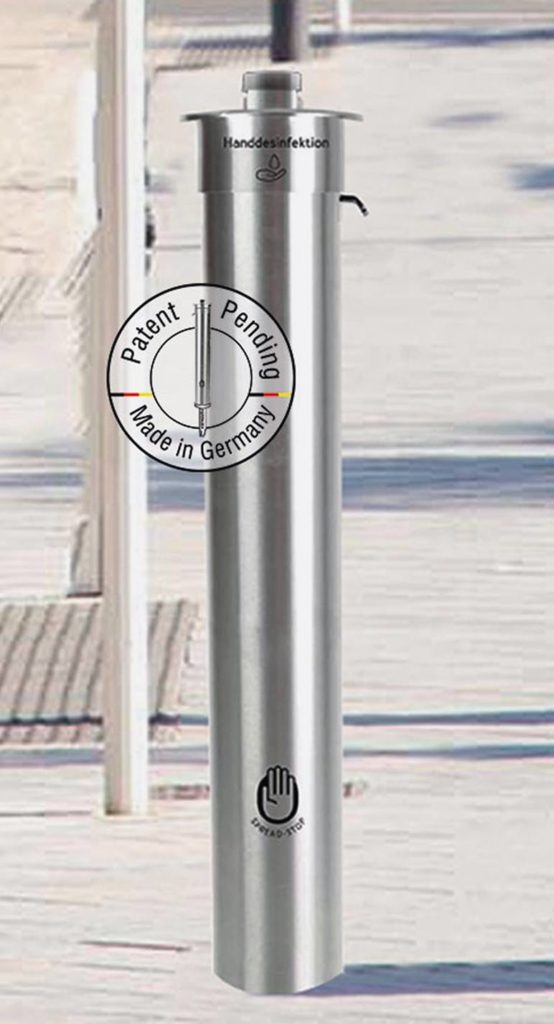
Hand hygiene stations recommended in public areas by WHO
All public buildings, including schools, healthcare facilities, and offices should have hand hygiene stations placed at their entrances, according to the World Health Organization.
Providing public access to hands disinfection, as on public areas, washing hands points are very rare, easy to use solutions with particular efficiency, exist and must be at everybody disposal. Helping people to feel safe outside, are barrier measures that cities, supermarkets, schools, trade shows centers, administrative building, gardens and beaches should be equipped with.
As a vaccine isn’t available, and even it was, thorough hand hygiene continues to play a critical role in the fight against COVID-19. The virus spreads through respiratory droplets (air, aerosols) or by contact. It can be transferred by direct contact when contaminated hands touch the mucous membrane of the eyes, nose, or mouth, or by indirect contact when the virus is transferred from one surface to another by contaminated hands. The WHO argues that practicing thorough hand hygiene – using either soap and water or alcohol-based hand rubs – can interrupt the transmission of COVID-19 and other viruses and bacteria to keep yourself and those around you safe from infection.

According to the WHO recommendations, one or several hygiene stations should be placed in front of the entrance to every public or private commercial building, and at all transport locations, including major bus and train stations, airports, and seaports. The number and set-up of the hygiene stations should be adapted to the number and type of users that will use the station (e.g. young children, elderly, those with limited mobility). To prevent the spread of the virus, everyone is encouraged to engage in careful hand hygiene before entering, and upon exiting buildings and all major means of transportation. The WHO notes that it is critical that access to hand hygiene equipment is made freely available and mandatory by public bodies.
Spread-Stop, is the economic solution for these public places to prevent hands cross-contamination: It is very robust, with an extreme security concerning the alcohol based disinfectants, able to operate under the most extreme climatic conditions, has an important autonomy and no need to electrical connections.





